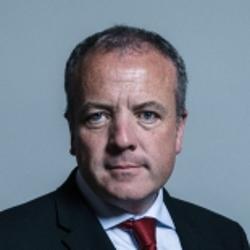Education: Sustainable Development
(asked on 21st March 2019) - View SourceQuestion to the Department for Education:
To ask the Secretary of State for Education, what steps his Department (a) has taken since September 2015 and (b) plans to take up to 2030 to achieve sustainable development goal four, target seven on education for sustainable development and global citizenship.
There are many opportunities in and out of school for young people to acquire the knowledge and skills needed to promote sustainable development and global citizenship (as outlined in Sustainable Development Goal 4.7). The Government introduced a reformed national curriculum in 2014, designed to focus on the essential knowledge that must be taught whilst empowering teachers to take greater control over the wider curriculum in schools.
Citizenship education is in the national curriculum at Key Stages 3 and 4 and primary schools can teach it if they wish to. Citizenship aims to prepare pupils to play a full and active part in society. It includes teaching about local, regional and international governance and the UK’s relations with the rest of Europe, the Commonwealth, the United Nations and the wider world; human rights and international law; diverse national, regional, religious and ethnic identities in the United Kingdom and the need for mutual respect and understanding
The reformed curriculum also provides young people with a strong foundation in environmental issues. At Key Stage 2 in geography, pupils must learn about diverse places, people, resources and natural and human environments, and in science they learn about human impact on environments, such as the negative effects of population and development, litter or deforestation.
The national curriculum is just one element in the wide-ranging education of every child and there is enough time and space in the school day and year to expand beyond the national curriculum specifications. The Department also encourages schools to participate in the Department for International Development and British Council funded Connecting Classrooms through Global Learning (CCGL) programme, which builds on previous programmes that were running in 2015 that raised awareness and understanding of global issues in 33% of the UK’s schools. The Department co-launched the new £38 million CCGL programme in 2018, which will provide opportunities for pupils in the UK and in the developing world to learn about global issues, so they are better prepared to live and work in a globalised economy. The programme will build 4,500 long-term relationships between schools and communities in the UK and countries around the world, involving 3 million pupils.
Young people can also participate in the UK Government-funded National Citizen Service (NCS) and the International Citizen Service (ICS), which encourage young people to play a more active role in society by completing short term social action projects in their local communities, or volunteering projects in some of the world’s poorest communities to building understanding of global issues.

